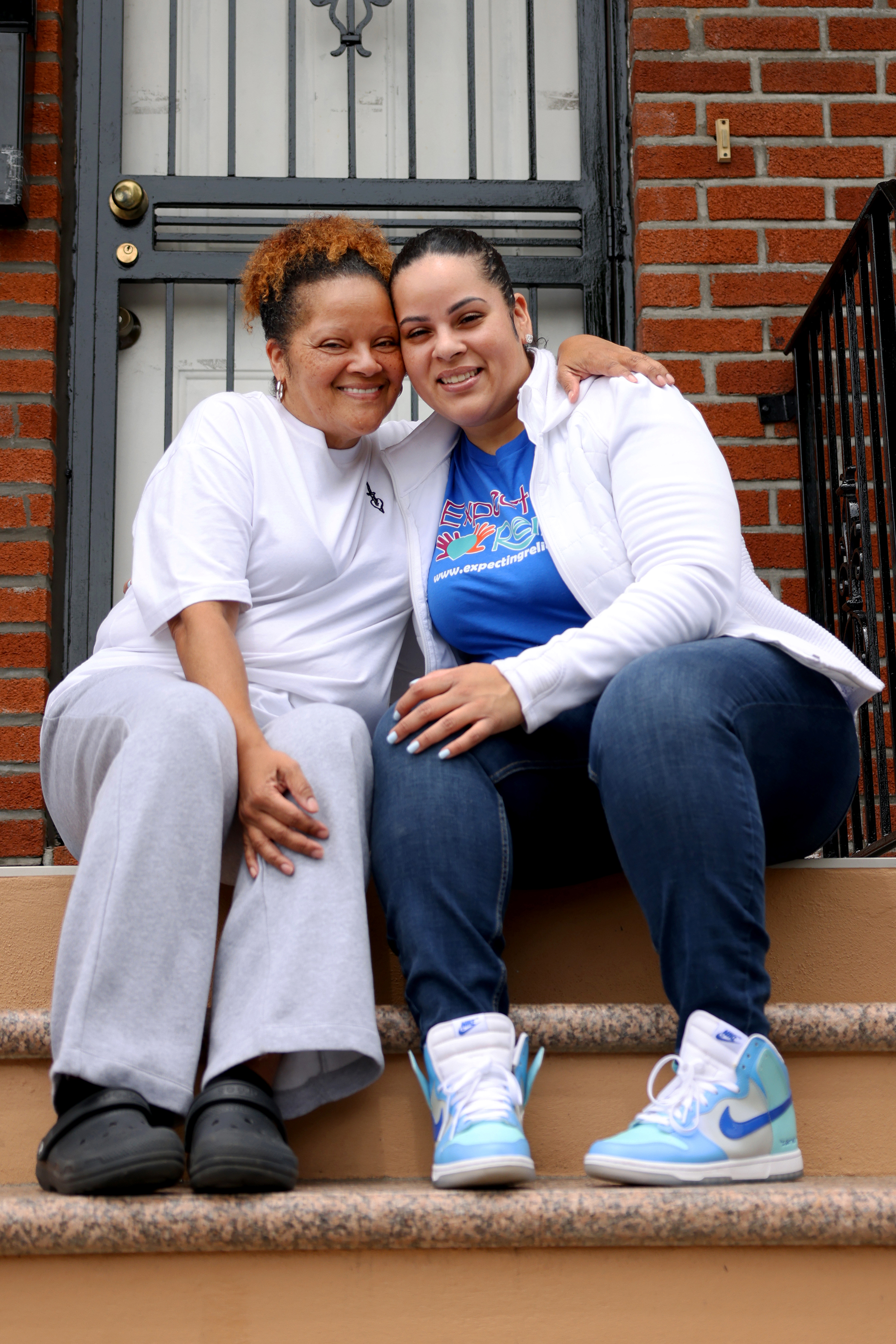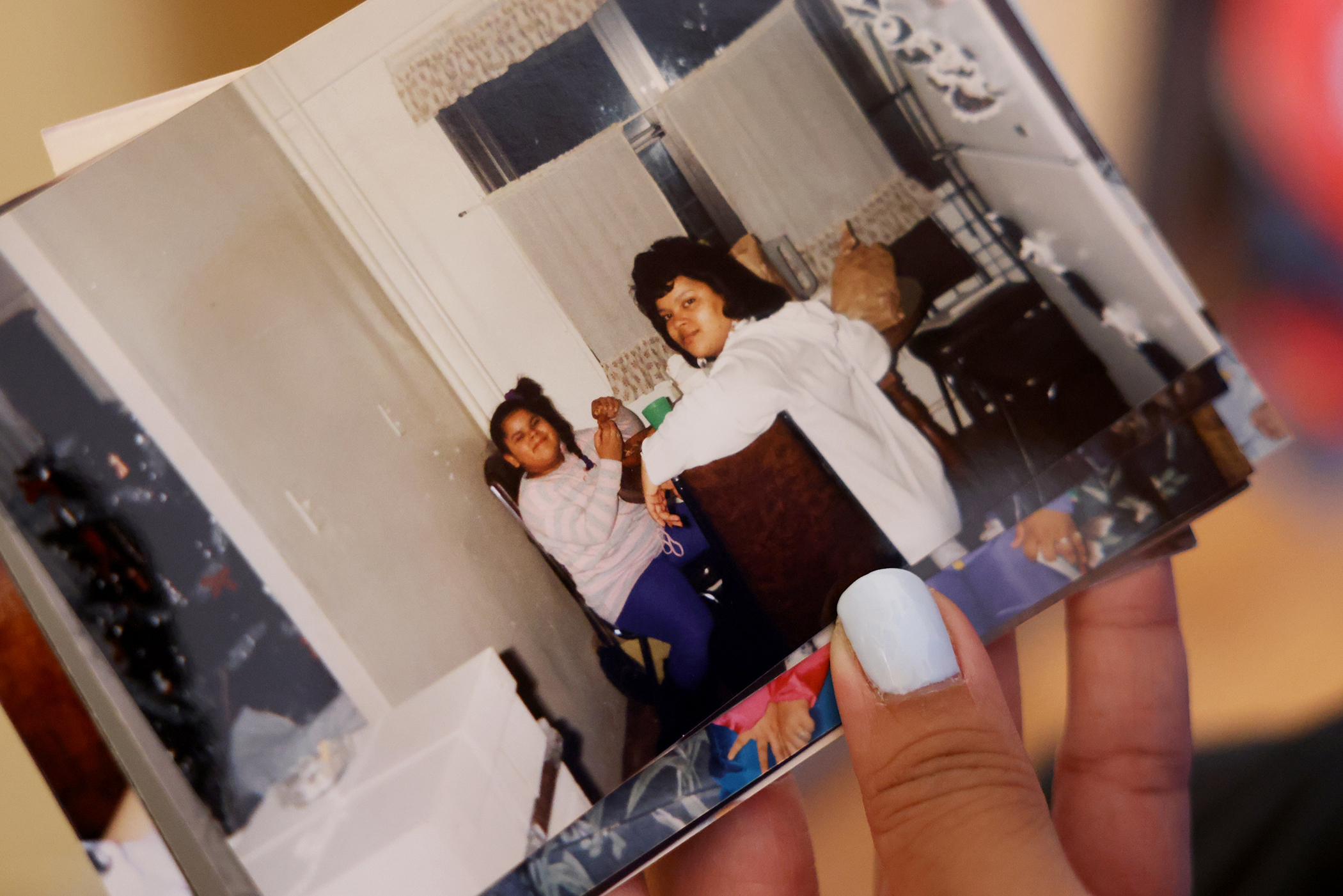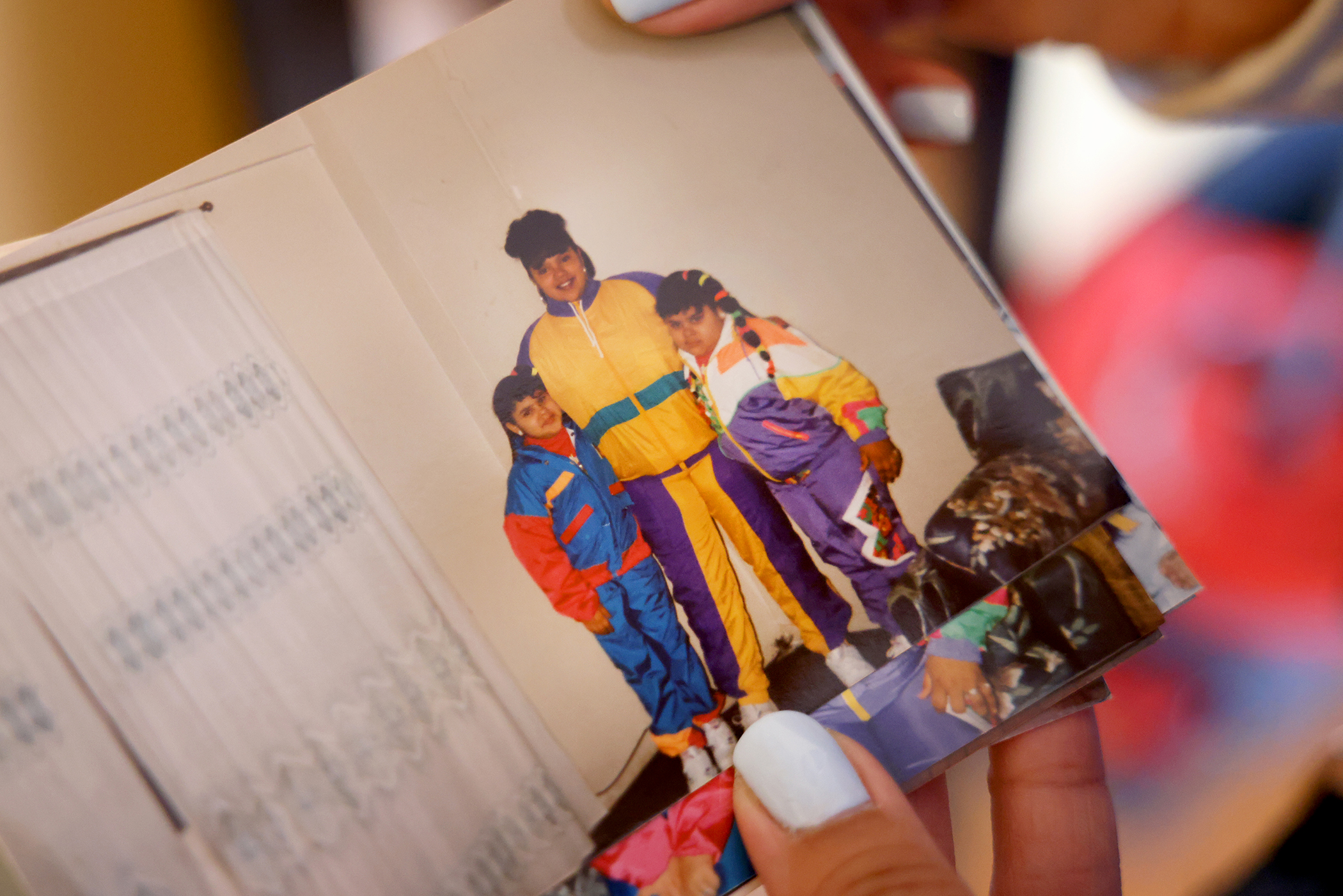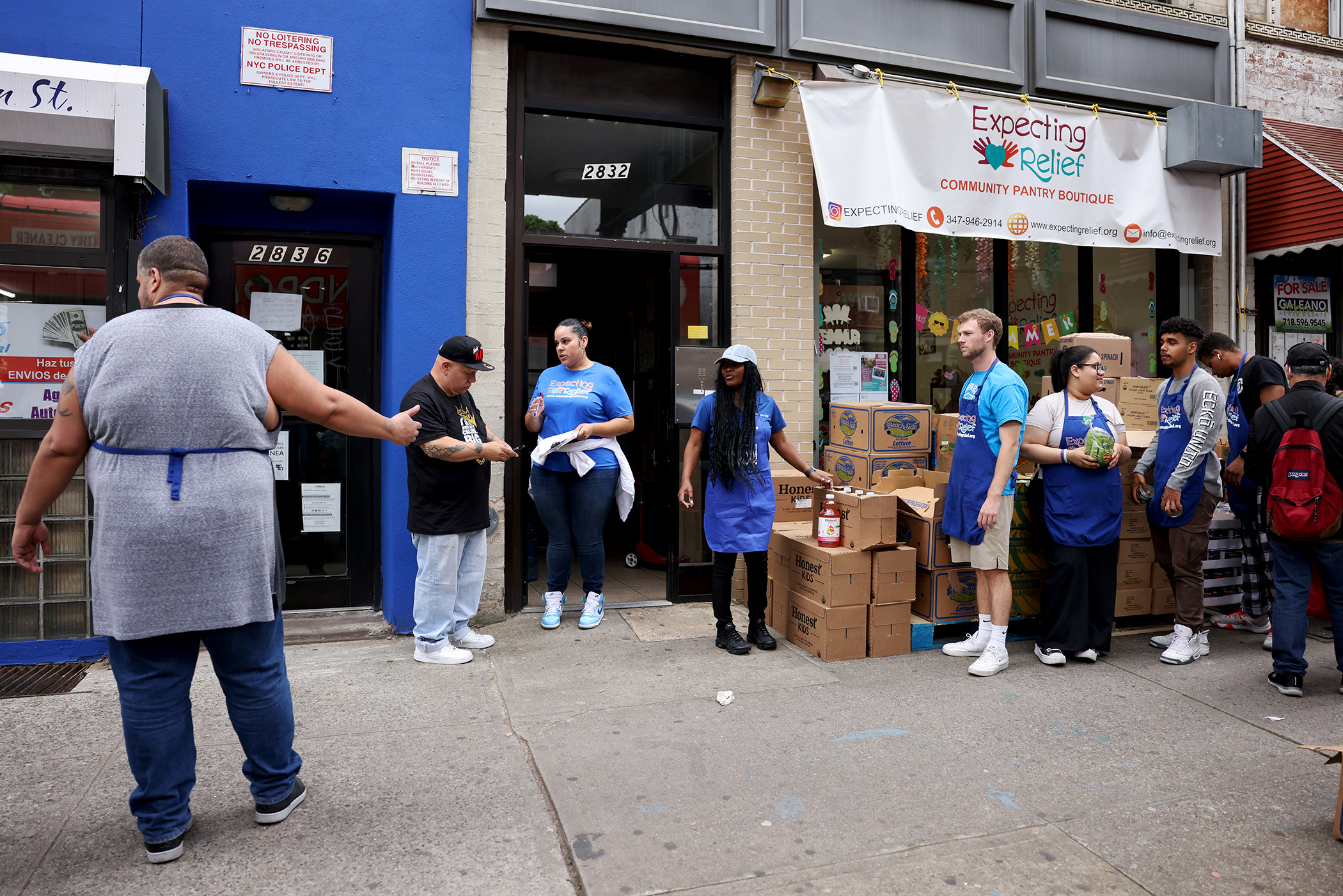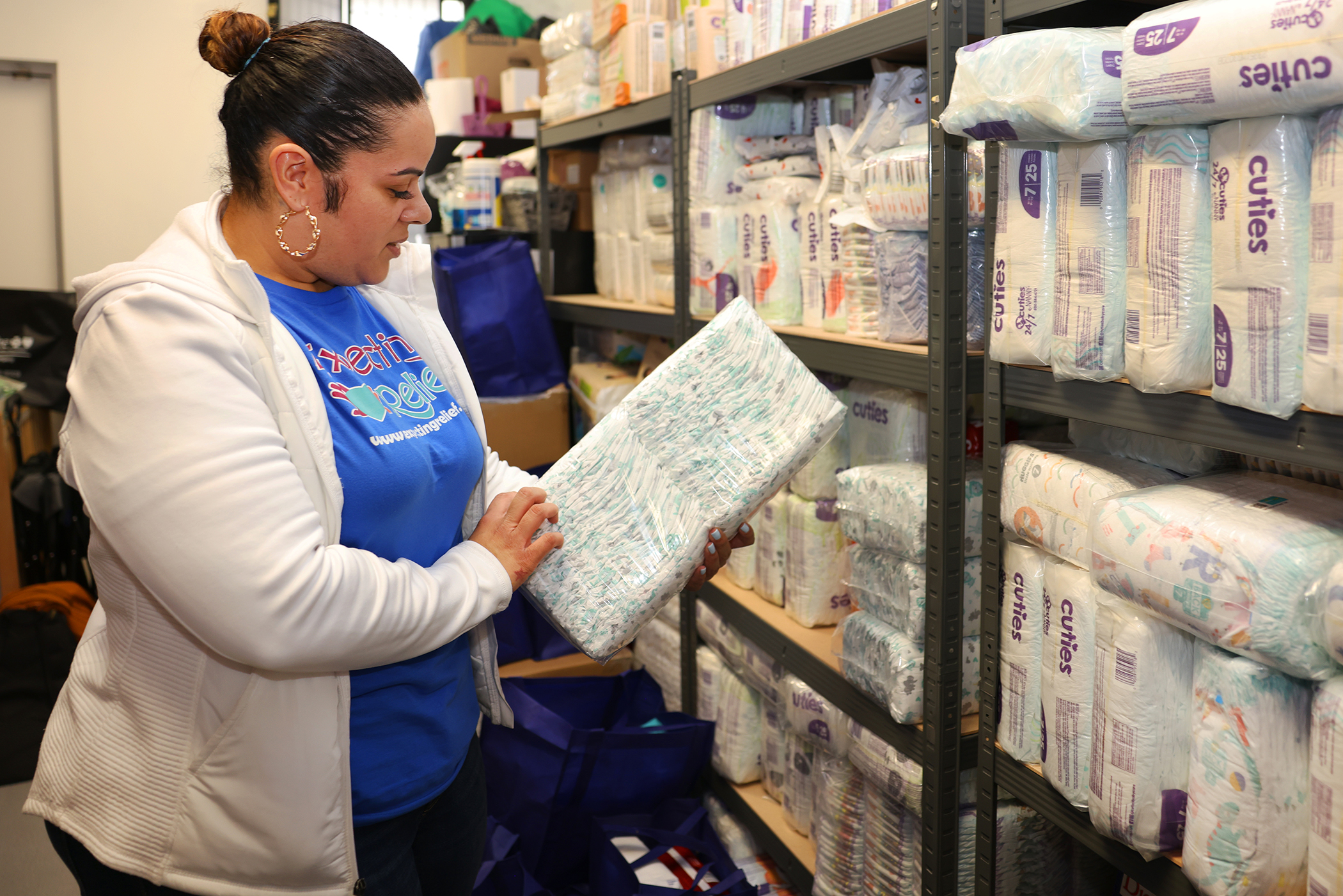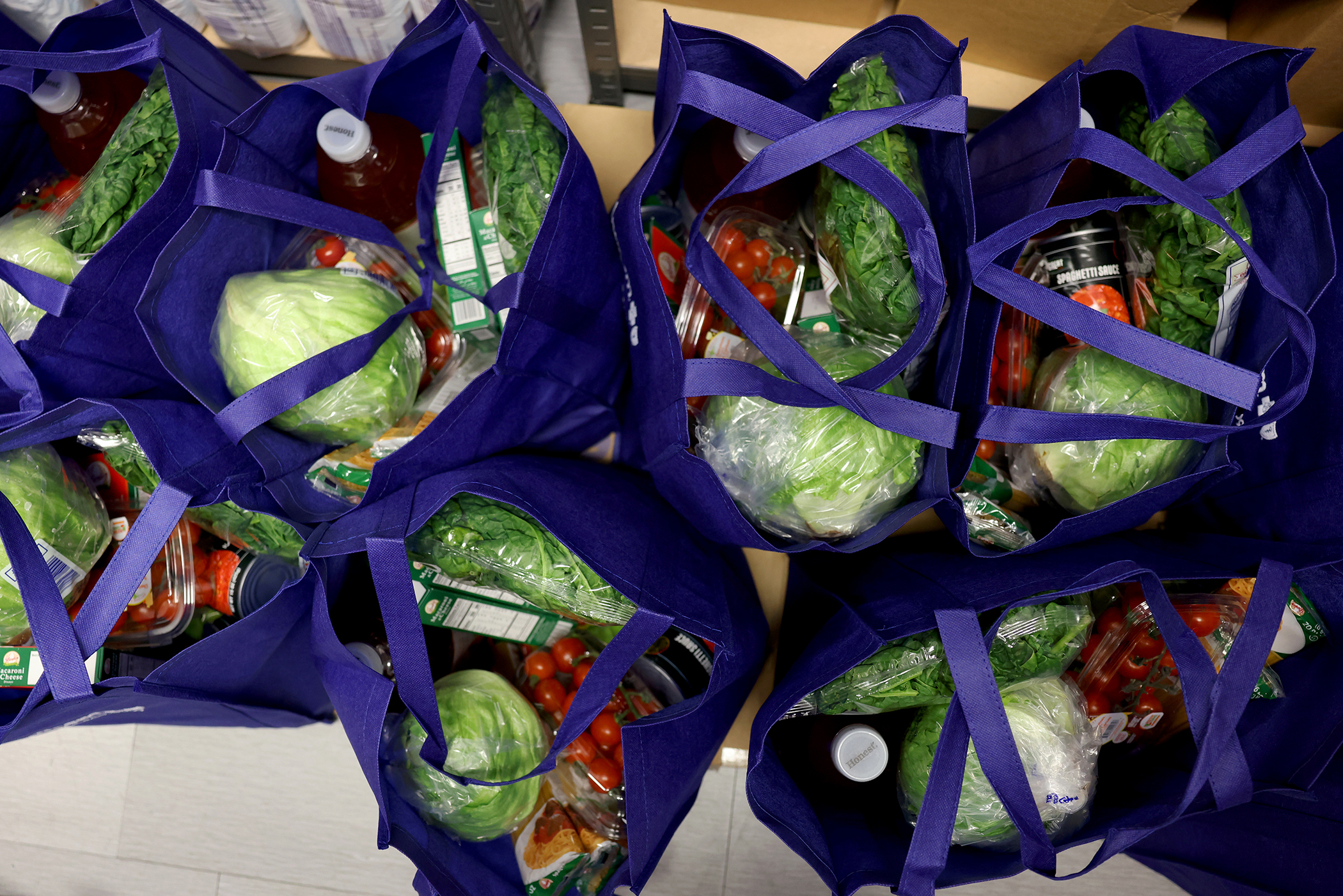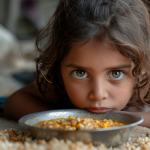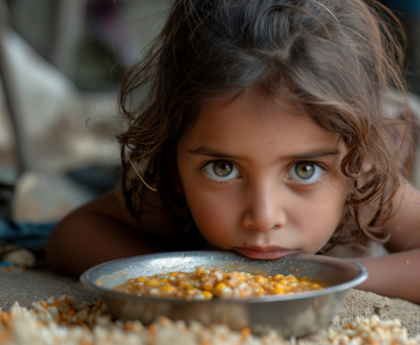Despite having the world’s largest economy, poverty is a challenge in the United States. According to the American Census Bureau, in 2022, 11.5% of the population, or 37.9 million people, lived in poverty in the US. There are also differences in levels of poverty according to racial groups with the American Psychological Association noting that “poverty rates are disproportionately higher among most non-White populations.” The Association further notes that poverty has a significant impact on children, with poorer children being at greater risk than higher-income children for a range of cognitive, emotional, and health-related problems as a result of poor nutrition, healthcare, housing and safety.
Poverty is also highly gendered in America with 70% of those experiencing poverty being women and children, and Black women and children particularly vulnerable to poverty. Civic space in The United States of America is considered narrowed by the CIVICUS Monitor, and with concerns around media raids and the surveillance of protestors.
After growing up poor in the Bushwick area of Brooklyn, Vanessa Bracetty-Ormsby decided to create social support and relief for some of America’s impoverished in her home city. Here she shares how she experienced and witnessed the impact of poverty while growing up and how she now advocates and works for poor and vulnerable people.
I am Vanessa Bracetty-Ormsby, and I managed to take my lived poverty-stricken experience, and what could have led to generational trauma, and flip it into a non-profit organization named Expecting Relief.
I am a mother of three currently residing in East New York, Brooklyn, but I grew up in the Bushwick area of Brooklyn, New York. I am a natural-born leader who genuinely and holistically has compassion for helping with the spirit of giving. I am dedicated to making a change and reinvesting into Brooklyn with hopes of expanding internationally.
As a product of the system, I grew up in the NYCHA project buildings in the Bushwick area of Brooklyn NY. Having limited access to food and clothing (due to a lack of education and resources for my mother) is the core reason Expecting Relief exists. I decided to pay it forward, since then Expecting Relief has grown tremendously.
Growing up in NYCHA projects in the Bushwick neighborhood there was crime, violence, drugs, and gritty streets [that] kept us indoors on weekdays and kept us from taking adventures on weekends. Raised by Hispanic parents, my sister and I were provided with the best our mom had to offer since she was the primary parent due to our father being a part of the system on drugs.
The impact the neighborhood had, as I saw from my dad and those who also were in the streets, was accessibility [to drugs]. It was everywhere with no intentions of wanting to better themselves and/or their families. It was their happy place. Our mom was very protective of our surroundings, but affordability kept us in a neighborhood bound to set us up for failure. Being a part of the system, receiving public assistance, and residing in the projects have subjected us to injustices. It also came with labels and dictation of what you will become. WWe were only allowed to go to school and straight home on the weekdays, which kept me as a straight-A student and developing reading as my hobby. On the weekends I explored what the city had to offer and kept entertained outside of the neighborhood.
Moving to East New York from Bushwick, my mom could rent a room in a shared house with access to a backyard and porch. Being there gave us fewer restrictions, but poverty still existed. At a young age, we saw less of our mom, who had to work far distances with long hours, so we would often eat with our aunt, who lived two doors down. We were on food stamps and wore what our mom could afford. A product of poverty and generational trauma became moments I did not want to relive. Instead they were marked and used as fuel [for what I’d build in the future]. Our circumstances helped build our character with morals, respect, integrity and humility.
As an activist, what matters to me is to see a more fruitful system where we are not divided, have equitable access, flourish, and live with dignity. Among the Sustainable Development Goals I am more passionate about number one which is “No Poverty”. Eradicating poverty doesn’t happen overnight and will be particularly difficult, especially for people and communities who have been historically disenfranchised. Our efforts in reducing poverty with the intention of ending it may be a long stretch, but we are focusing on the solutions as opposed to the process.
The American Dream has changed to mean different things to different generations. I have learned that America markets itself as the land of the free with many opportunities to live the American Dream. Terming it a “dream” also carries with it the notion that these ideals aren’t necessarily what has played out in the lives of many Americans and those who hope to become Americans.
As income inequality has increased substantially, the American dream has become less attainable for those who aren’t already affluent or born into affluence. Work provides purpose in life, a place to go, a sense of control, and income. For many low-income people, however, jobs are often unavailable and if available, they often pay poorly or do not provide health insurance. To make ends meet, many people in poverty rely on public or familial assistance.
 Vanessa Bracetty-Ormsby works out of her Brooklyn home on May 17, 2024.
Vanessa Bracetty-Ormsby works out of her Brooklyn home on May 17, 2024.
America must ensure better outcomes for our people, especially since we forcefully run the country financially. We are good enough to tax but not good enough to hold positions to better ourselves, better our families or have a say in laws or bills unless in position. The issue itself has been everlasting with many activists along the way creating structural history, but the fight doesn’t end there. We must hold ourselves and the government accountable to change the narrative. Ordinary people can change the narrative based on their level of bravery. Some tactics can consist of base-building, disruptive movements, narrative shifting, electoral changes, inside-outside campaigns, voting, lobbying, and/or drafting legislation. Tech has made it easier for activists to organize and mobilize people for events, campaigns and protests. They can use social media, messaging apps and other digital tools to coordinate and plan events and campaigns. There are low-level and high-level tactics that can be used to create change, with many opportunities within the US to do so. You want to always create a safe space to protect yourself and prevent yourself from being fearful or persecuted when deciding to become an activist.
I founded Expecting Relief in 2011, but the journey began in 2014, the year we became an exempt 501c3 [which is an organization, such as a non-profit, that is exempt from federal income tax]. With boots on the ground we advocated by providing food and basic essentials to our community who were in need. We always were in search of ways to amplify our message and make a bigger impact on a higher level. Expecting Relief is a minority-led non-profit organization whose mission is to provide equitable access to nutrition, essentials, and healthcare through distribution, education, and advocacy.
Expecting Relief was founded due to my own lived experience and a family friend going through rough times and in need while expecting. We provide holistic services tackling social, racial, and vulnerable disparities such as food, menstrual hygiene and maternal relief. We are based and operate in Brooklyn, and expanded into Broward County Florida in July 2022. Our vision is to design an opportunity where all people live in dignity.
Expecting Relief offers three services targeting Black and brown families to help improve social, vulnerable, and racial bias. Our nutrition services include biweekly food distributions filling in the hunger and food desert gap. We also have three Title 1 school food pantries we service on a monthly basis reaching 827 students, with a priority to students in temporary housing scholars. Our cycle relief program addresses both access to period products and menstrual health education. In times of uncertainty, sanitary needs become secondary or even tertiary to finding food and shelter. A global issue that needs to be addressed as a public health crisis. Our aim is to maximize period poverty awareness, speak openly about a topic that is often taboo, and improve access to all feminine hygiene items.
Lastly, we provide a three-pronged maternal relief approach in efforts to improve maternal and infant health. We host community wellness and postpartum showers, an intimate setting with expecting mothers and new moms who are below the poverty line with signs of distress due to lack of finances and emotional support. We shower moms with the much-needed resources to support them before, during, and after birth inclusive of their “My Birth Rights” package detailing their rights in a hospital setting.
Such resources include presentations on menstruation, postpartum, lactation/breastfeeding, sleep safety, and infant/toddler CPR. As a diaper bank we offer partner and direct services ensuring all babies are kept clean and healthy with monthly access (by appointment in NY and distributions in FL) to baby’s basic essential needs such as diapers, wipes, formula, clothing, and hygiene items. Additionally, we provide doula care access, pairing expecting Black and brown moms under Medicaid insurance and/or below the federal poverty line with a doula, decreasing the maternal mortality rates. A doula’s presence has shown to facilitate greater respect and autonomy in decision-making. Of all the ways birth outcomes could be improved, continuous labor support seems like one of the most important and basic needs for birthing people.
In 2022 we became a diaper bank through membership with the National Diaper Bank Network and a Period Supply Bank as members of the Alliance of Period Supplies where we were introduced to advocacy. Advocacy also opened the doors for us in 2023 as we were chosen to attend the Anti-Hunger Conference, a part of the NYC Cohort by United Way alongside Food Bank and City Harvest. Our focus in Washington D.C. was to advocate for prioritization of the Farm Bill Policies to expand SNAP access by removing barriers to eligibility, lifting the poverty threshold and increasing SNAP purchasing power. Through the network and our food agency partnerships we have been able to visit Albany and Washington DC and speak with legislators on food, diapers, and period poverty.
 Lines form around the block for food distribution at Expecting Relief in Brooklyn, NY on May 17, 2024.
Lines form around the block for food distribution at Expecting Relief in Brooklyn, NY on May 17, 2024.
For the first time we have been successful in receiving $500,000 federal and state funding at the request of $1.5 million with the support of Senator Roxanne Persaud, Nader Sayegh, and Assembly Member Michaelle Solages. We have been able to receive a sign-on of 22 signatures for the cause which is 9 more signatures than last year’s successful efforts. The funding supports the 16 diaper banks across New York State, with Expecting Relief listed as the 3rd diaper bank in Brooklyn, as well as us being a part of the New York Diaper Bank Coalition. We also have visited Washington DC these past two years partnered with the National Diaper Bank Network to speak with our fellow district leaders, where we ask them to co-sponsor the End Diaper Need Act and support $20 million in funding for community-based diaper banks across the United States.
The challenge when advocating is policy makers not understanding the request. Some of their employees who hold the meetings in their presence can be young college graduates who are not up to speed with the extensive background on the topic you are presenting. Some are not parents or grew up in poverty to be compassionate or understand the effects. They may not see it as a priority or might not place the issue on the top of their list. The most we can do is make it relatable and explain with testimonies or personal experiences of why we are here asking for them to push for change. Thankfully within the two years I have been advocating there has been no backlash [to my work], but in the event there is, I will be fully prepared with a comeback.
It’s important to have people in office from diverse backgrounds that will fight to make our country a more fair and just place. In my experience, real change comes not just from inside the political system, but also from ordinary people taking action together, and forcing those in power to respond. It would be nice to see the state be more inclusive with their decision-making and not just gather data from one resource to make a verdict. There are no specific ways in which to do this, but [the idea is to] see ordinary people influence federal and state levels of change. Getting into politics by all means is not for the weak as it is a very controversial space and can be quite intimidating for some. I suggest forms of civic engagements such as getting to know your districts’ leaders/representatives, volunteering, exercising your voting powers, joining a political party, or signing a petition.
 Vanessa Bracetty-Ormsby is the founder of Expecting Relief, a nonprofit organization that focuses on providing access to essentials for families, and women and girls, in the New York Area. Vanessa is photographed in her home in Brooklyn, NY, May 17, 2024.
Vanessa Bracetty-Ormsby is the founder of Expecting Relief, a nonprofit organization that focuses on providing access to essentials for families, and women and girls, in the New York Area. Vanessa is photographed in her home in Brooklyn, NY, May 17, 2024.
The day-to-day choices and laws made by the government affect us every day and the majority of citizens are not in tune with the economy as it simply does not interest them. I continuously learn and grow through my work and have a newfound interest in being more involved on a legislative level. Unity is very powerful but there is a lot of distance and egos preventing the beauty that will come out of it.
Anyone interested in donating to or volunteering with, or any media can email me directly at [email protected]
As Told to Gugulethu Mhlungu, the article has been lightly edited for clarity.
The 2024-2025 In My Own Words Series was made possible thanks to funding from the Ford Foundation.
This post was originally published on 3rd party site mentioned in the title of this page


